We had the chance to talk with Dr Ivan de Weber, worldwide specialist of anti-aging. Dr de Weber holds a PhD from the University of Geneva in the field of cellular biology, and a post-doctoral certificate in pharmaceutical bioinformatics from Uppsala University.
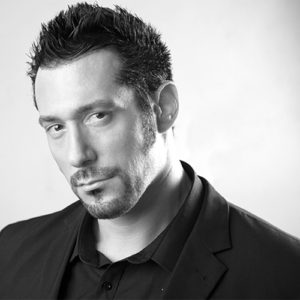
Dr. de Weber is behind the development of innovative concepts in aging genetics with game-changing implications in the fields of pharmaceutical research and stem cell therapies. He specializes in implementing novel bioinformatics methods in early-stage drug discovery, and currently leads pharma-oriented research to select active nutraceutical compounds based on their ability to modulate targeted gene expression. Through the P4M Genomics platform, he is also involved in establishing cutting edge genetic testing services with the aim to implement personalized medicine on a large scale.
Can you tell us how you became interested in biology and genetics?
Since I was a child, I couldn’t accept the concepts of ageing and death. I was concerned about how people seemed to have given up, while technologies have been improving drastically. Therefore, I decided to specialize in biology in order to find a solution. I rapidly moved toward biochemistry and genetics. I did a PHD in cellular biology focused on the genetics of ageing. Then I did some post-graduate studies in Pharmaceutical Bioinformatics, 12 years after my PHD, to keep up to date with the latest advances in research technologies, since everything changed in the meantime. To materialize the concepts I developed in the fields of ageing, I knew I would have to deal with a lot of data. Big data in cellular biology and in silico research in pharma are two key elements that fell into the picture recently.
Just before my studies, it had been estimated that researchers worldwide would sequence the whole genome sequence by 2010. A couple of years later, around 2000, it was achieved for one billion dollars. Nowadays, whole genome sequencing costs less than a 1000dollars. The magnitude of this development, in terms of costs, is about a million times.
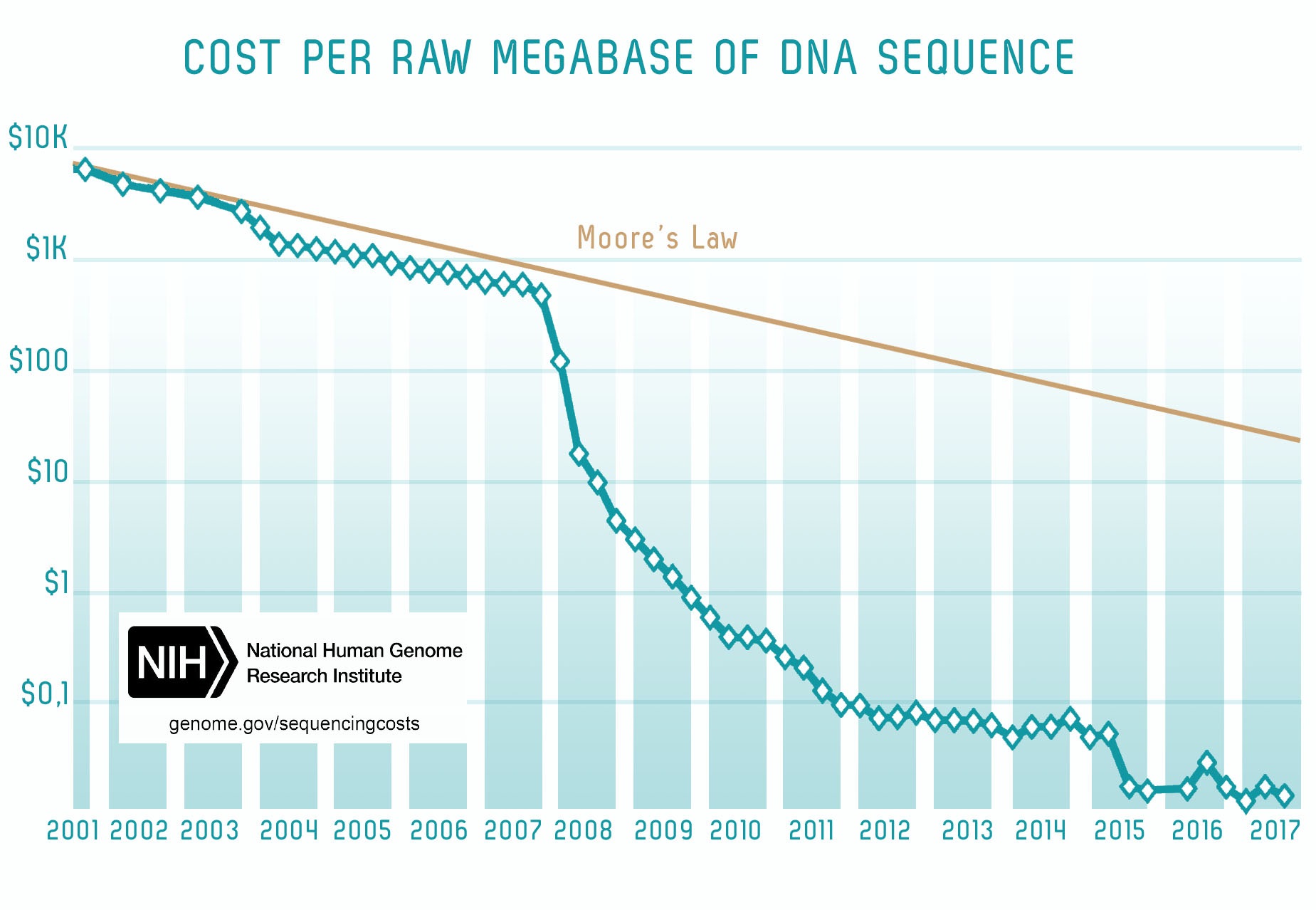
The pace at which we are reading DNA is like the IT revolution with a 20 years delay. What was happening in the early 2000’s for IT will happen in the 2020’s for genetics and personalized medicine. It is happening so fast that forecasting the scope and magnitude of forthcoming breakthrough is difficult. As surprising and amazing than what happened for IT, tremendous breakthrough will come, as the human body’s microscopic machinery, is somehow IT.
What are the countries that are the most advanced, up to date in this field?
There are specialists everywhere. In our board, we have people from all over the world. In the US, they are very advanced in this field, they notably had a large implication in the Human Genome Project; moreover Celera, a US company, sequenced the whole genome first. China hosts the BGI (Beijing Genomic Institute) sequencing center, which is the largest genomic facility worldwide.
How did you have the idea to create P4M Lifesciences?
I have been involved in genetic testing since the beginning of large-scale commercialization of genetic analysis. A few years ago, I met my associate Pierre-Alexis Gratadour. We shared a passion for fighting ageing and living longer. He had a software platform, Ephycient, that had the potential to be useful in the genomic approach to personalized medicine in terms of storing, displaying, and interpreting genomic data.

P4M stands for Predictive, Preventive, Personalized and Participatory Medicine. There are different levels. The personalization part of our approach of P4 Medicine is approached through Genomics. We are not focused on predictive medicine itself but more on personalization of medication prescriptions because not everyone reacts the same way to a given drug. This field is called pharmacogenomics and uses DNA tests to determine which patients will be a fast metabolizer , slow metabolizer , toxic responder or non-responder in regards to a specific medication.
The backbone of the P4M Genomics, the Genomic part of P4M Lifesciences, is the Ephycient software that optimizes healthcare facilities through the organization of meetings, processes, stocks and much more. The platform is secure, will host our genomics data and allow safe communication of DNA test results to healthcare providers.
On the prevention side – in order to get a result towards aging and better health – we created the concept of Advance Formulas.
Advance Formulas, is based on genetics as well in the sense that we choose molecules upon their ability to activate specific genes to trigger their expression towards a specific effect. In technical terms, our approach is epigenetic modulation. Our products are basically what I call epigenetic nutraceuticals. This modulation is not changing the DNA code but it is tweaking the way DNA is folded so it behaves a different way. Actually, we want it to “behave younger”. The concept is to produce what the body needs instead of replacing it. We look into specific pathways in order to trigger specific mechanisms. For example, for our longevity supplement, we use molecules to trigger caloric restriction pathways, which are linked to proteins that are called Sirtuins. There are molecules like resveratrol that are acting on these mechanisms. When you consume them, your body is behaving like if it was starving, which is good for longevity, according to many studies among various species. We are using tools that are coming from pharma in silico research, in order to determine which type of molecules will be the best candidate to activate a specific gene or a specific pathways. We also double check – through meta-analysis – related scientific publications in order to optimize dosage. We work with other databases in to determine the type of interaction in order to get the best synergistic effects and avoid some side effects.
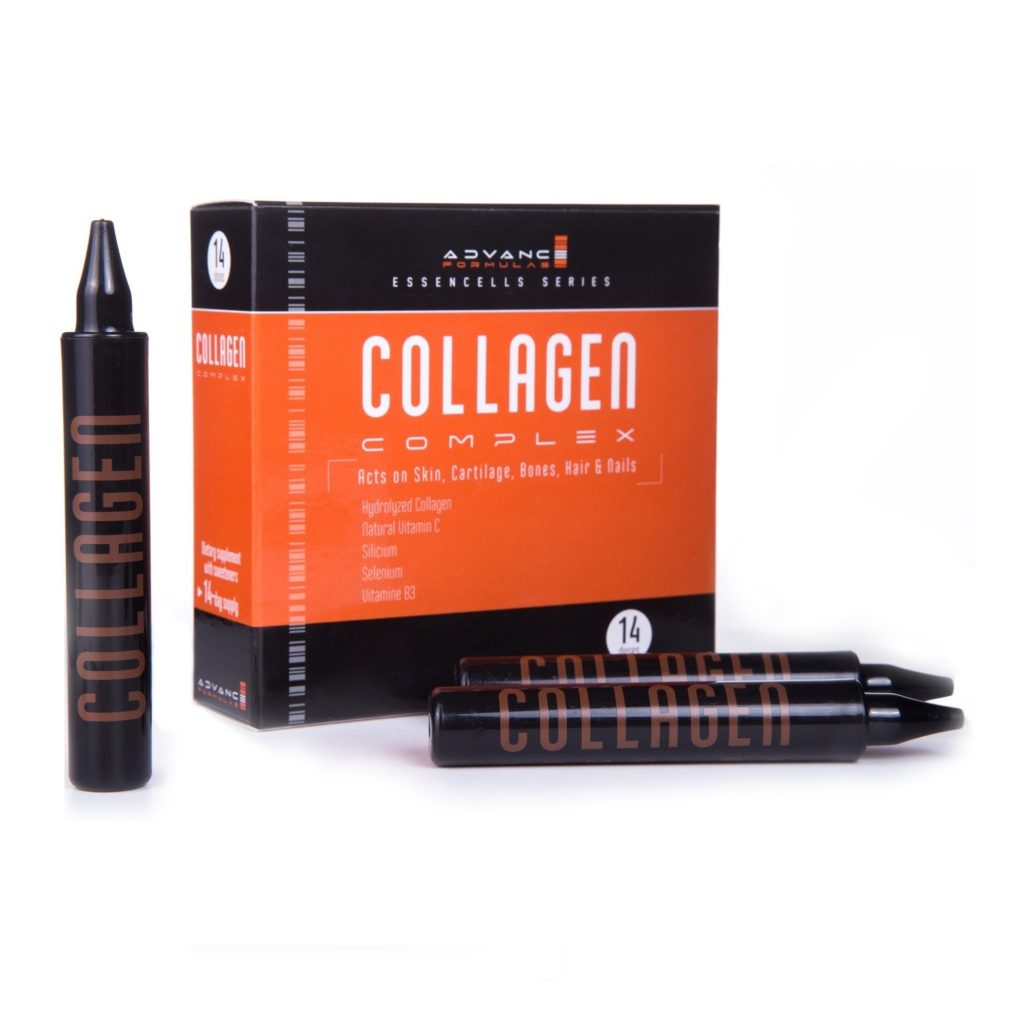
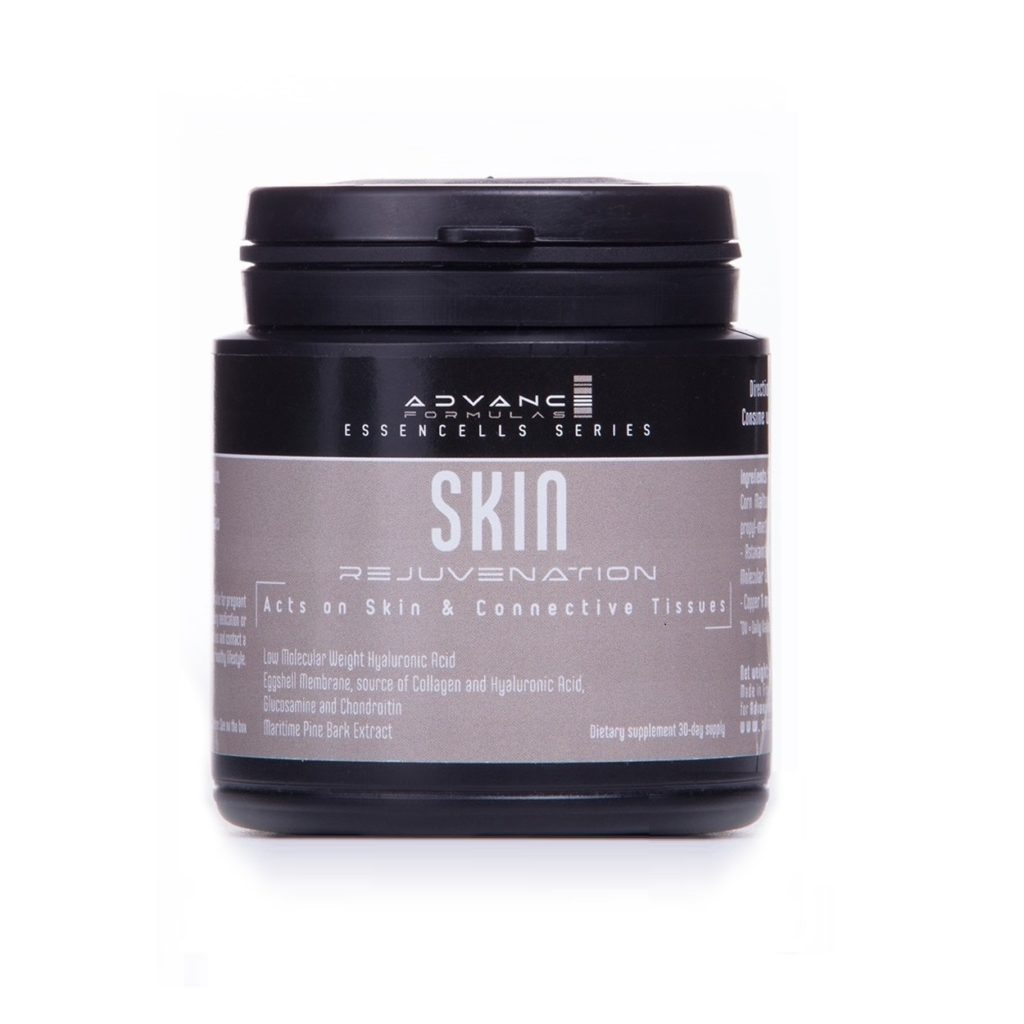
On your website you talk about “Supplements based on Artificial Intelligence”. How does it work?
Our in-silico research is partially based on pharmaceutical bioinformatics and some of the tools that we are using pertain to the pharmaceutical and artificial intelligence fields. AI itself is like statistics on linear algebra. There are different tools that are being used by the platform we use. There are different ways to know if a molecule will fit to a specific target; you can put the coordinates of the molecules in a kind of matrix and see how it can interact with a potential target. There are as well some test errors that are being made in order to determine which would be the best fit. We are notably investigating the use of proteochemometrics, working with AI-based methods like random forest. We are investigating the use of deep neural network as well. Basically, we are using tools from pharma and we apply them to food supplements.
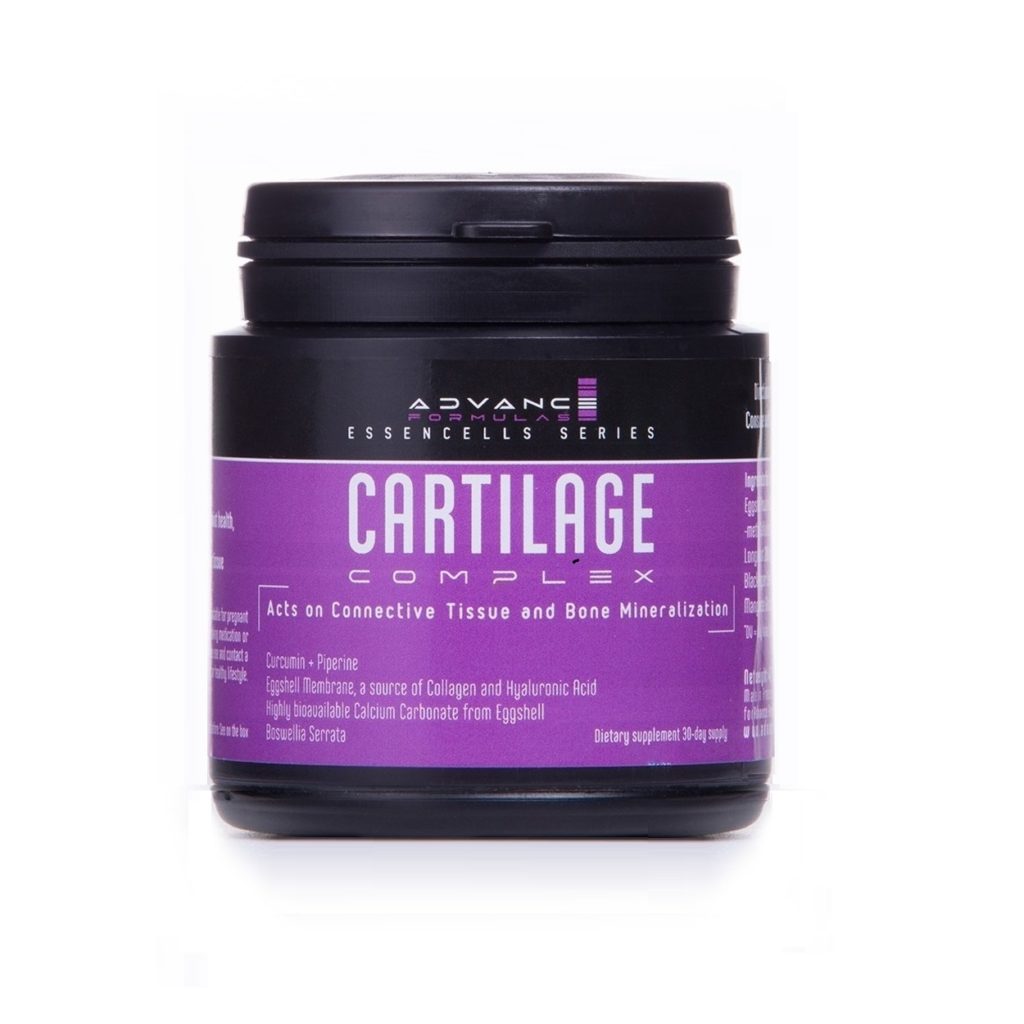
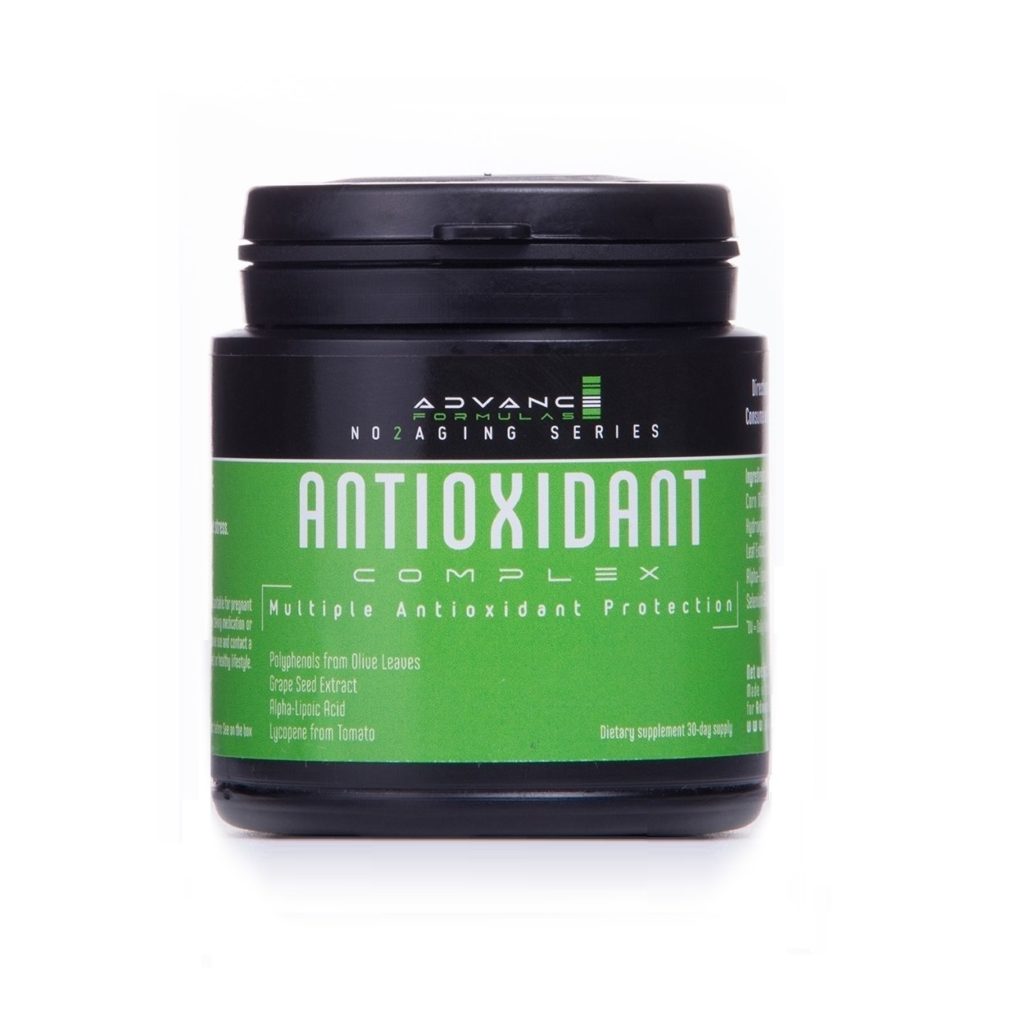
How are your supplements produced, are they synthetic or are they coming from natural products?
They all come from natural sources. The molecules that we have chosen are present in nature. The concept will later be extended to pharma and is based on proprietary theories linked to genetics of aging. On one side we have groups of molecules and on the other side groups of targets which are either gene promoters or molecules involved in triggering specific pathways, like specific receptors on targeted cells. The group of candidate molecules could be anything; it could be natural compounds, it could be existing pharmaceuticals for drug repurposing, or it could be new molecules. We are working on finding molecules that could stimulate specific features that we want to achieve the activation of. So far, we chose natural molecules that are already being used in food supplements in order to avoid toxicity and also to avoid waiting many years for an approval from the FDA. Natural compounds can be as effective as medication. For example, in our joint product, we put an active form of curcuma that we combine with piperine which enhances its bioavailability. Clinical trials show that curcuma is as effective as Ibuprofen and Diclofenac for joint inflammation, without the side effects.
We target pathways with natural molecules which don’t have drug’s side, we are basically at the intersection between food supplements and pharma.
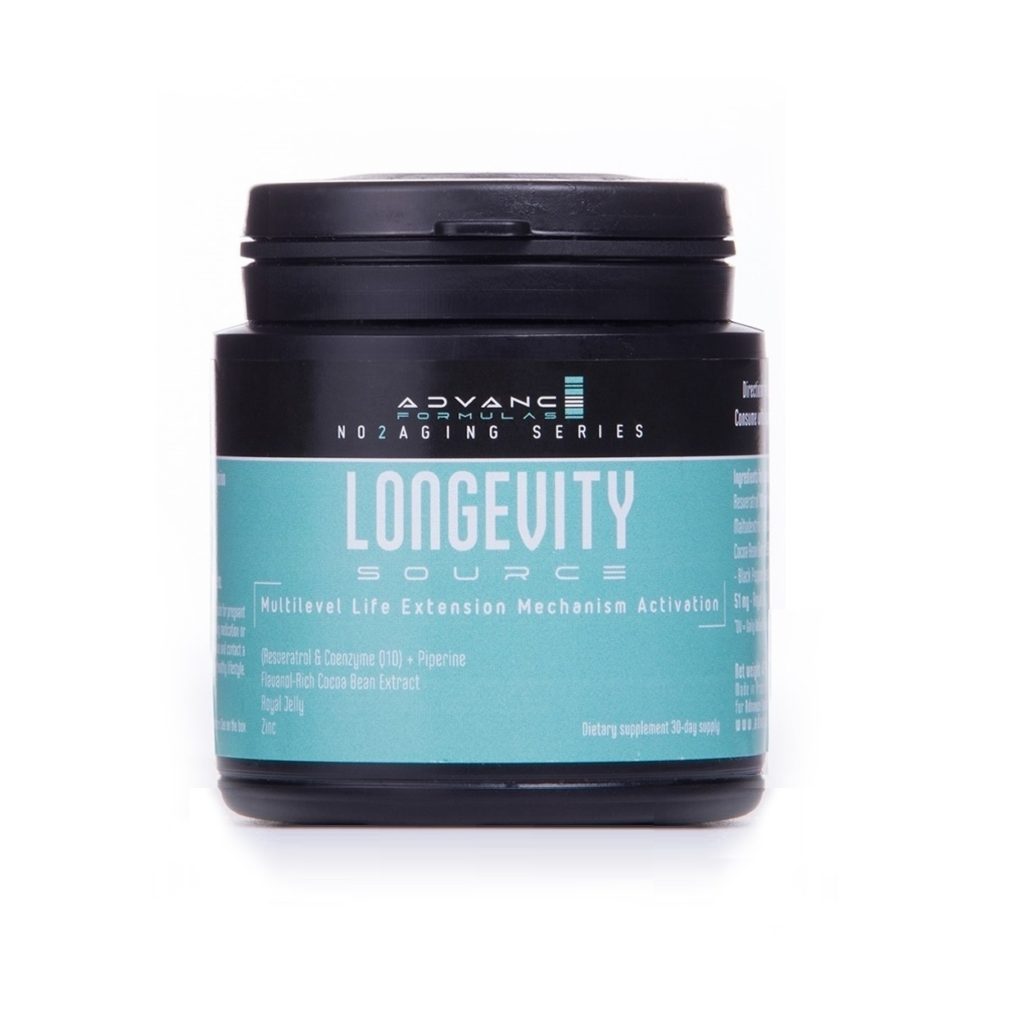
In your field it is difficult to be sure that something will work because you would need too much time to see if longevity is really working. However, today, do you have some elements that can prove that your supplements are really helpful to live longer?
There are genes and pathways which are correlated with longevity. We know that if DNA repair is enhanced, if oxidative stress defenses are enhanced, if longevity is enhanced in animals that are similar to us, it should be enhanced for ourselves. For our Longevity supplement, we chose molecules that have extended lifespan in animals (from 10 to 59%). There are molecules that increase mice or rats lifespan of about 25%. After determining a specific molecule’s choice, we evaluate the dosage to have the equivalent human dose. In research, in general, everything is first tested on mice. There are all types of research tailored mice: diabetic mice, mice with Alzheimer’s etc. To some extent, we can assume that what works on mice work on humans. On the other hand, we verify that these molecules have an effect on parameters linked to longevity in humans. For instance, the molecule has to be effective to extend life with mice, plus it has to be effective for health in humans in order to either prevent some diseases or decrease the risk of that disease or to help treating that disease. For the records, we can actually not say that we cure a disease; it’s a standard general FDA statement also applying to Europe (European Food Safety Authority). Actually, food agencies just refuse health claims related to diseases, that was my point. However, some of the molecules that we are using are prescribed as side treatments to chemotherapy because they are anti-mutagenic and reduce oxidative stress. Some natural compounds are very powerful, some of them are as potent as medications.
To summarize : we look at what works in animals, we try to have a human equivalent dose and we double check that it works on humans, that it has been tested and taken for many years, that it’s authorized, and has an effect on parameters correlated to longevity or reduces diseases or features that appear with aging.
Tricky question: someone who is now 40 years old, if they start to take the longevity supplements, what are their life expectancy?
“That’s very difficult to assess” would be my initial official public answer to that … A friend of mine Dr. Aubrey de Grey, member of our scientific board (he’s one of the most prominent celebrity in the field aging) said about a decade ago, that people born today (10 years ago) could achieve a thousand years. That’s was definitely for marketing the science of Longevity. It’s not true, but it’s not a lie either and it holds some truth.
I’d like to be a bit more philosophical on this matter, as this is the way Aubrey defends his claim and the way I always saw it. In the perspective of someone who wants to live longer, the question is not to live 120 years or 150 years or 200 years. If you reach 2050 pretty healthy, then you have access to technologies that will enable your lifespan to be extended to reach another threshold, like 20 years more. Future technologies, should allow another 20 or 40 years; and I don’t see a reason for these steps to stop.
Before, I was depressed at every birthday, and now I am not down anymore. Every year I am taking new molecules, and I know that they trigger changes are enhancing my lifespan more than the year I aged. So I am not getting younger but I’m escaping from death. From the perspective of someone who is a hardcore longevity or singularity “believer”, the objective is to be is a good shape until the next technology arises. What we are doing is the first step towards concrete life extension and we will offer other things in pharma later on in the mid-2020’s that will trigger stronger effects.
The concept of not aging is not really right but you can see aging as a mechanism of deterioration; if you repair as fast as you deteriorate you stop a process. The process itself is not stopping but you need to reach an equilibrium. That’s not what we are doing at the moment and I think it’s not possible to achieve this equilibrium within the human body. However, with external factors like stem cell therapies and specific technologies that are being developed at the moment, like gene therapies, there is a strong possibility to achieve this objective.
There is this guy, Craig Venter, at the head of Celera who defeated the Human genome consortium, in terms of cost-effectiveness and timing. He was believing that Aubrey de Grey was nuts with his predictions. A few years after, meanwhile his focus was never towards life extension, he founded a company called Longevity inc . They are working on genomics and life extension. When he was asked about a limit to human lifespan he just did not answer more than something like life expectancy could become much, much longer than expected.
Finally, my answer is that our longevity product includes ingredients that extend the life of a mice from 10 to 25%, and there are several of them. We are acting on parameters that are sometimes correlated but sometimes independant. So we cannot add up these pourcentages. If we could add them up, we would achieve a lifespan multiplication by a factor greater 2, if we add-up the best results among species. A mouse that would take a cocktail of these molecules would not live that much longer, but I would say that life extension should be significant because we’re doing animal trials with species very close to us and that individual compounds we use increase their lifespan of 10 to 25% and sometimes about 60% for some species. So, for mice, like for humans, the supplement should definitely give a significant increase in longevity.
Google is working on this with their subsidiary Calico. Do you have information about what they are doing? Is there some hope on this side? is it secret and classified?
One of the founders of Calico stated that Sergey Brin, co-founder of Google, would not die, so their objective seems clear.
They might do something significant as they have substantial funding, moreover, today’s research needs computing power, and Google is in the pole position to offer that. That’s all I can say; their research is its infancy and they do not have any breakthrough yet.
I just wanted to emphasize on the growing need of high computing power in research.
Not long ago, research was still empirical, just correlations between substances and effects. Today, for food supplements in most cases, and for pharma sometimes, it’s still just statistics and correlations: “that molecule is correlated to this effect and so we take it because it works”.
Nowadays, pharma research starts to be more and more targeted, as we understand the molecular mechanisms we want to stimulate or to repress and we look for molecules which are actually enabling this activation or deactivation. This generates data and needs computing power because of the large number of potential targets and the larger number of potential candidates.
What is missing now in terms of research, what would you like scientists to discover to really make a big step in this field ?
In aging, the big picture is missing. We aim to be the company that has it and will make the first large step towards life extension.
Moreover, the general focus of pharma research is on specific diseases arising from the results of aging rather than from its cause. Also, in pharma research, in general and in aging in particular, in-silico methods are not up-to-date, more has to be done in the computer than on the bench.
More generally, at P4M Labs, we believe in an exhaustive approach.
It’s not only looking for mechanisms to trigger through natural molecules or novel pharmaceuticals. We also want to avoid problems, diseases, to personalize medicine. That what’s being initiated from the P4M Genomics side.
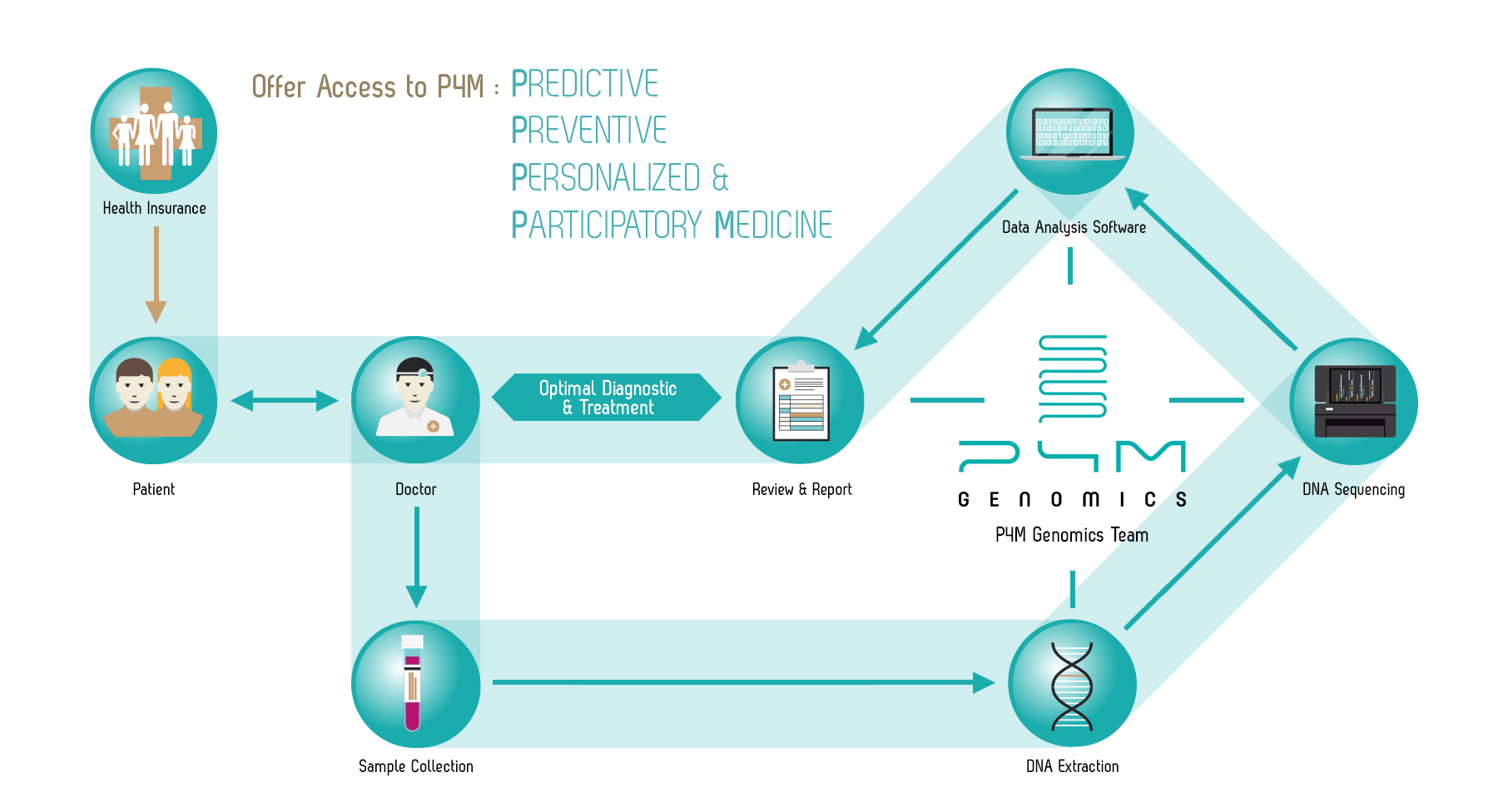
Can you give us a concrete example of what you are doing with P4M Genomics?
We are notably sequencing genes coding for proteins that are called cytochromes. These enzymes belong to a family of enzymes that’s called P450. They process medications. Depending on how good your protein is at processing a medication you might have a different speed of drug metabolization. If you have an anticoagulant and your process it poorly, you will probably need more of it.
We determine if the polymorphism in the genes of these cytochromes are making a specific drug more active, less active or toxic. If the cytochrome is not able to process it at all or if it processes it the way it creates something toxic, the patient should not take it at all. If it processes it too fast or two slow compared to the average patient, the dose should be adjusted.
It allows to put patients into categories that will enable to find the most appropriate treatment.
The pharmacogenetic approach allows choose the medication before seeing the side effects or adverse response. In the medical field today, doctors give the medication and depending on the effect on the patient, they adjust the dosage or change the medication.
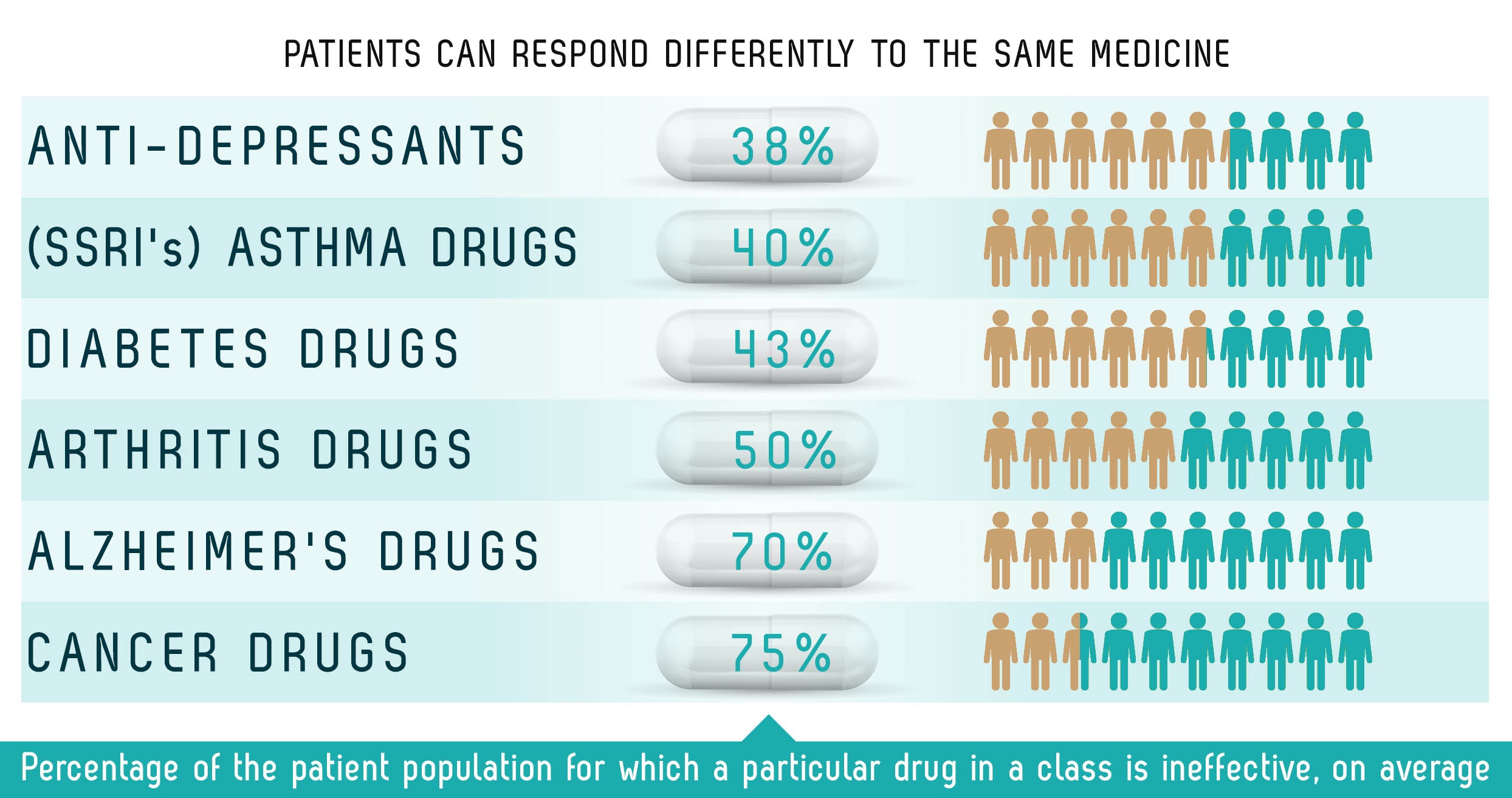
P4M Labs is a B2B business, not a B2C. Who are your customers?
We have the tools to spread pharmacogenomics in a cost-effective and easy-to-use way to doctors and to have this service as a last security check in pharmacies, before taking the medication; it’s a double safety that we want to offer. This will increase the chance that this approach is being used. So far, these tests exist, but most of the time, they are not comprehensive enough, the interpretation is not good enough or they are not up to date with the latest knowledge which is changing very quickly. Moreover, the results are not delivered in a user-friendly electronic format. We want to convey this science in a simple way to doctors and pharmacists.
From an ethical perspective, we don’t want to make discriminations against patients, but on the contrary, we want to help patients and doctors to find the best treatments for better health and cost-efficacy.
Who is behind P4M Lifesciences ?
Pierre-Alexis Gratadour and myself. We both have this logical and innovative approach for improving healthcare. For me it’s more from the genomics and biochemistry angle. For him it’s more from the organizational schemes and databases that he manages. It’s a good combination. We both have skills and interests in informatics but in different areas. We combine innovation in new technologies that are directly linked to genomics and cellular biology.
The Ephycient platform is a good example of that processing part, because it’s an organizational platform that’s innovative by taking into account several key parameters and optimizing the processes of a healthcare company. Pierre-Alexis is behind data and processes organization and I’m behind the science.
Let’s go back to Advance Formulas; we talked about longevity, what are the other supplements that you have in this set ?
We have the Cartilage Complex, which works on the regeneration of tissues, against inflammation and for bone mineralization together. The combination is quite interesting, because with less inflammation you have less degradations and more regeneration of joint tissue. Skin is another good example of what we do with Advance Formulas, because we actually act on several parameters. Beyond bringing what the body needs, hyaluronic acid in that case, we have other molecules like pine bark extract which enhances the expression of genes such as collagen 2A and hyaluronic acid synthase that programs the skin to produce molecules that are responsible for its elasticity and of its hydration. There are also other parameters like age spots which are reduced. We have also the collagen complex which is combining silicium with collagen ; it’s for skin, hair, nails.
Is there a synergy between your different products?
Yes, every product is linked to the other. Collagen Complex is a good combination with Skin Rejuvenation. Some elements of Collagen Complex are also helping for joints. Then we have the antioxidant product which is really linked to Longevity. Antioxidant Complex includes a very efficient molecule which is hydroxytyrosol. This compound is giving olive oil its virtues, supposingly the main reason of life extension for those who follow the Mediterranean diet. With our products you get the benefit of this molecule without having to absorb the fat present in olive oil, which needs to be consumed in quite large quantities to be effective.
But is it assimilated by the organism as well as the original product?
There are studies about the absorption for several of the compounds that we use. Collagen is being absorbed; there are trials which show that there are traces of collagen and hyaluronic acid that you eat found in the skin. There are clinical studies that show that there is a 32% decrease in wrinkles compared to placebo with one of the ingredients that we are using (for the collagen product). For the skin product, there are other parameters such as elasticity that are improved. Sometimes there are not so many studies because you need a lot of funding to determine the absorption of compounds. We know that the dose of molecule that we are putting in our products are actually active and trigger an effect. However, concerning the absorption rates, I don’t think there is available data for every compound. For example, the absorption of Vitamin C from acerola is better than plain vitamin C. And the calcium that we have from eggshell membrane is better absorbed than calcium oxide alone.
Regarding compounds for which absorption has not been studied, we know that it works, there is an effect, so there is an absorption. For instance, I have not seen studies about the absorption of hydroxytyrosol as supplements compared to olive oil. But clinical trials using hydroxytyrosol show many health promises.
There are some molecules that need to be in a specific environment to be absorbed and we have taken that into account.
Can you tell us about your Community on Facebook ?
Through our No2Aging community, we wish to guide our customers towards the optimal lifestyle so they can reach optimal health and boost their longevity potential.
Longevity will not be achieved by only taking food supplements. Moreover, taking supplements is good but you need to know how to take them. Let’s take the example of training and oxidative stress. When you train, you generate oxidative stress. Oxidative stress makes you age and develop diseases faster. So sport is good, but too much of it will generate oxidative stress in inadequate quantities. There are different rates at which you should train and different things that you should do. If you do sport, you train your body to fight against oxidative stress, then it becomes stronger at this task. This endogenous antioxidant capability that you’re enhancing is being trained by sports at certain types of frequency. If you take antioxidant before exercising, the effects that are triggering endogenous antioxidant defense won’t actually work. So you should avoid taking antioxidant before exercising. You should actually take it after the peak of your training. That’s when it’s the most beneficial in terms of oxidative stress defense stimulation and antioxidant protection.
Our community, will display all types of sources of research available that is linked to life extension. We can adapt our lifestyle to have a significant enhancement of lifespan according to what has been done with animals in terms of longevity. In terms of reduction of mortality as well. Coenzyme Q10, for instance, reduces mortality in humans.
Food supplements is one part of no-to-aging, but lifestyle, like diet, caloric restriction and sports is another important part. There are several ways to benefit from sport, not only by triggering antioxidant defenses; you will also benefit from muscle mass because will produce more hormones. You also want your body fat to be very low to avoid some disorders.
Supplements, nutrition, lifestyle (sports, sleep etc) are the 3 current pillars of our content. We’ll add research on the esthetic point of view, reviewing what we can do for skin ; stem cell therapies, plasma therapies et .
We will communicate about genetics as well as some members of our community will also know about genetic polymorphism thanks to our DNA tests.
Genes and food metabolism are interconnected, hence, in the near future, we wish to investigate the connection between genetic polymorphism and food supplements.
The No2Aging community will basically communicate about what is available today, as well what will come tomorrow. We are working hard so our upcoming longevity boosting medications become part of the lifestyle of these who want to live longer.
Many thanks to Dr de Weber for enlightening us on these exiting and crucial subjects. For our readers who wish to learn more about these activities, they can check out his website P4Mlabs or contact him at contact@p4mlabs.com
